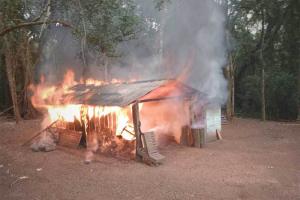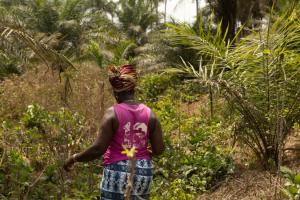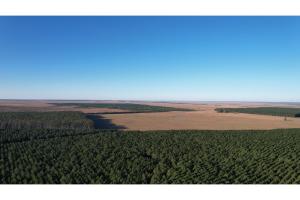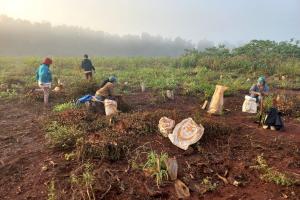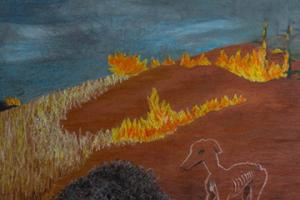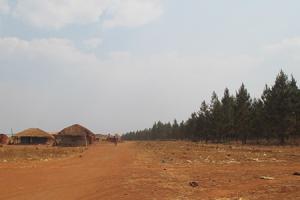Timber
Large-scale, intensively-managed and even-aged tree monocultures for timber production have been expanding onto communities’ fertile lands. They have destroyed forests and grasslands, especially in Latin America, Asia, and East and Southern Africa. The species used are exotic and fast-growing. They include varieties of eucalyptus, pine and teak trees.
Quilombola Communities’ Resistance Against Suzano Company in the Southernmost part of Bahia, Brazil
The Argentinian government continues to subsidize industrial tree plantations, now as a policy against climate change as well. From dispossession and land appropriation, to deforestation and more forest fires, pine trees are devastating territories and communities.
Suzano was present at the 2021 UN climate negotiations for one main reason: to promote tree plantations as a ‘solution’ to climate change, under the name of ‘nature-based solutions’. It aims to profiteer ever more from the so-called climate policies.
Tupinikim indigenous leaders, in Brazil, share the experience of their people in the struggle against one of the largest eucalyptus plantation and pulp production companies in the world, Aracruz Celulose – currently named Suzano Papel e Celulose.
On the frontlines of the promotion of monoculture tree plantations as a solution to the climate crisis, families affected by tree plantations in Mozambique, Tanzania and Brazil, have once again denounced the serious impacts on their lives and the environment.
Suzano, the world’s largest producer of eucalyptus pulp, is seeking to intensify its operations with so-called ‘green bonds’ as a way to finance its expansion projects.

